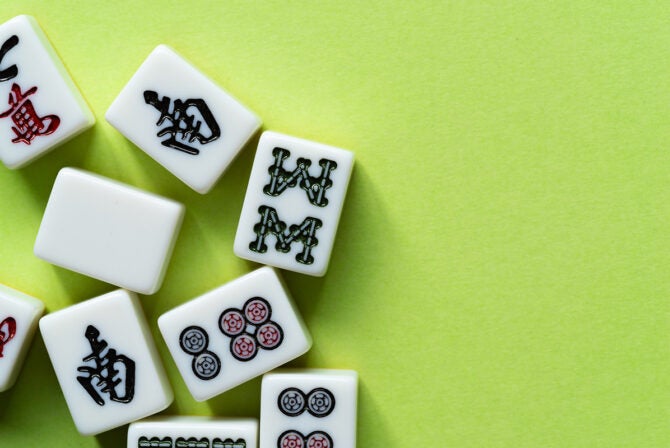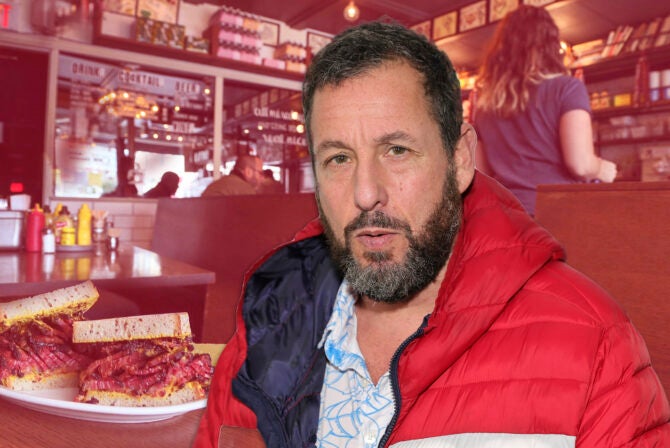He called me negra. Not mami or guapa, but what translates to “black woman.” I wasn’t offended. More confused. The thing is, I’m really just a white Jewish girl from Brooklyn. There, I said it.
Junot Diaz came to give a book talk and I was awestruck by the man who stood in front of me, waxing poetically in a black hoodie sweatshirt. Would that have been the time to correct a genius? Oh, I am sorry, Junot, I’m actually just another Jewish girl from Brooklyn. I balked.
My last name is Rabinowitz, and with a name like that, and a life like mine, I’ve had my share of jokes and stereotypes, but never anything I couldn’t handle. The more interesting paradox is that the hue of my skin and the positioning of my features has often made me appear more Hispanic than anything else. After a while you get used to it, and eventually, I even started to believe it. I lived and studied in Ecuador, Argentina, and Mexico. Each trip I returned home with more mannerisms and vocabulary inadvertently adding to my new identity.
Junot Diaz is Dominican, and when he says a Spanish word to me, I know he is not testing my high school course (of which I got a 95), but relating to me as one person of color to another. This is that awkward moment when any of us have to tell people we are something we are not. I enjoy the warmth of being talked to in Spanish–included in a group. Sometimes I like it better. Sometimes it goes too far. Not in a Rachel Dolezal way, but a lie just the same.
Once when I was in San Francisco, I attended a fundraiser. I went. I chatted. I danced. And when Gloria Estefan’s “Mi Tierra” came on, I moved the generous sized hips I was given so much that one might think this was my national anthem. It was at that point that a Latina lady with short black hair looked at me and my gyrations, and chanted, “Latinas in da house.” I didn’t correct her. I saw no need. We were bonding. Instead, I lifted my right hand and without missing a syncopated beat, high-fived my new bestie and replied, “En la casa baby.”
Mothers have wanted to arrange play dates, immigrants have asked for directions and help, and men have tried to pick me up. “So what part of Argentina are you from?” they all ask. I try to tell them the truth, but they only see what they want to see.
Sometimes at educational meetings, Latinas have included me in their groups: “Mami over here, we saved you a seat.” Once I told them I was actually “white,” their jaws would drop and I would see the disappointment in their eyes. They didn’t call me mami anymore.
I am not the first Rabinowitz to have the ability to pass as someone else. My paternal grandmother, with similar features and bravado, passed as a gentile during World War II, and was able to get her family to safety in Israel. Her camouflage allowed my lineage to continue. I am not sure what this identity means for me.
Although of European and Russian descent, I consider myself Jewish first. I don’t identify with cultures I know little about—cultures that did not protect my family or care for them but executed and tried to destroy them. I do identify with the warmth and familiarity of being a negra, or a mami, or any member of a group, which accepts me and cares for me as one of their very own.
Sometimes, the mistaken identity does not work in my favor: a roommate in the south, who didn’t want a “Mexican” moving in; the people in buildings who close the door in my face and won’t let me in. These little things give me a glimpse into the racist society we live in. A glimpse, but not a real sense of it. I felt like screaming, “You idiot, I’m Jewish!” as if that would have faired any better with bigots.
When I tell people I am Jewish, most of them freeze, like they don’t know what to do with the information. There are many Argentinian or Hispanic Jews but people seem so fixated on identifying me with my origin, they don’t realize that Jewish is a religion. I spend a lot of time educating people on the differences between nationality and religion. People seem disappointed when they learn I am Jewish and that is not easy to take. I want people to like all of me.
And while this mistaken identity is not intentional, I am still guilty. I feel guilty for both. The privilege of passing for a preferred group when I want to or it’s convenient and for lying to avoid the arduous explanation. Guess that is the Jew in me. But in the end, it’s not as important how others see me, but how I see myself. I am a woman. I am Jewish. I am strong. And I am not Sophia Vergara–but thank you for thinking it.
Read More:
Why My 16-Year-Old Son Took a DNA Test to Prove He’s Black
This ‘Real Housewife of Potomac’ is Black and Jewish–And Causing Drama







